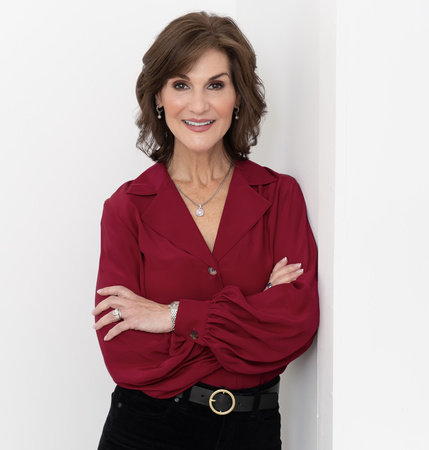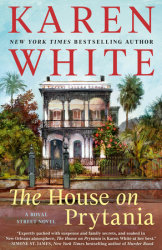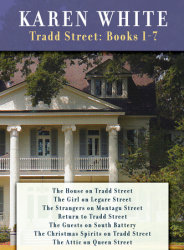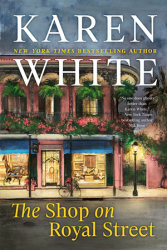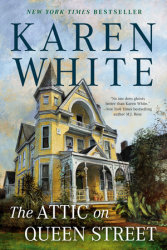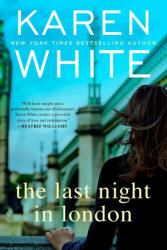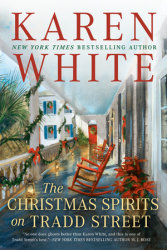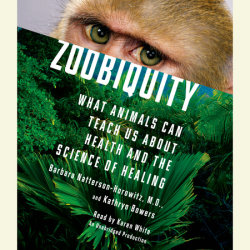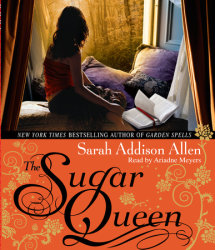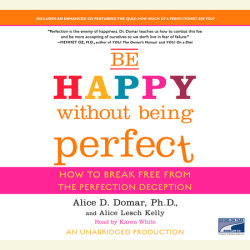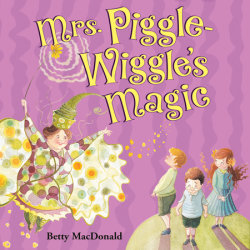Karen White is the New York Times-bestselling author of more than twenty books, most recently The Night the Lights Went Out. She grew up in London but now lives with her husband and two children near Atlanta, Georgia. She went behind the books with Penguin Random House to discuss her writing routine, her greatest literary influences, and what she hopes her books will do for her readers.
PENGUIN RANDOM HOUSE: What’s your writing routine? Where, when, and how does it happen?
KAREN WHITE: With back-to-back deadlines, I usually write every day whether I feel like it or not! My best time of day to write, when I’m at my most creative, is first thing in the morning so I try and avoid social media and other interruptions until I have at least two pages written. It’s always easier to pick up where I left off if I have the characters running around in my head before I go on with the rest of my day.
I can write anywhere as long as I have my laptop. I wrote my first few books in my Volvo SUV parked outside football practice fields, horse barns, and in carpool lines. When my kids were younger, there never seemed to be enough time to write, so I simply found time.
Right now, I’m sitting on the wide front porch at my Florida beach house, getting ready to start my next book. My dogs are with me, and are allowed to stay as long as they don’t talk to me. I come here 2-3 times per year for about six weeks, usually on deadline but sometimes to start a book. There’s something about the salt air and relaxed existence of the beach that inspires me.
PRH: What writers have influenced you most?
KW: There are so very many, but at the top of my list would be Pat Conroy. Not only was his writing so delicious and his word imagery so perfect, but he also introduced me to the South Carolina Lowcountry, a setting I return to again and again in my own books. I also must add a nod to Carolyn Keene, Margaret Mitchell, Harper Lee, Zora Neale Hurston, and Diana Gabaldon.
PRH: To what extent does your writing reflect your own life story?
KW: Never intentionally. I do write about sisters or only children probably because I was raised with three brothers, and I was always aware that my mother was the oldest of five girls and I grew up listening to her and my aunts doing their Southern sister girl talk and being mesmerized by their voices and their stories. Those are the voices I still hear when creating my strong Southern female characters.
It was pointed out to me a few years ago that I usually write about mother-daughter relationships that aren’t always happy ones. I’ve never had a close relationship with my own mother, so maybe this is my therapy.
I will also freely admit that all the names my husband nixed while we were naming our two children have been used as characters in my books. As have the names of my less-than-favorite people from my past—disguised of course—for the villains. It’s one of the joys of being an author.
All that being said, in my book The Night the Lights Went Out, the setting of the small town of Sweet Apple, Georgia is based on my own hometown. I did borrow heavily on what it was like living in suburban Atlanta—the traffic, the tennis moms, the roundabouts—but the rest is completely my imagination.
PRH: Do you actively search for your next book subject, or does the subject “choose” you?
KW: It always seems to choose me, and usually while I’m writing another book. I keep my mind open when I’m writing and when I discover something interesting, I throw it in the back of my head where I call my “writer’s stewpot” exists and let it simmer until I’m ready to pull out all the ideas. I stick the most compelling ones together and find a way to connect them. This becomes the basis of my story—but only after I’ve figured out who my protagonist is and what her internal and external conflicts are. This always comes before setting and plot—since both can’t be arrived at before I know who that protagonist is.
For The Night the Lights Went Out, the initial spark came from having a near collision with a giant white SUV in a roundabout, and noticing the rear window of the vehicle filled with so many stickers that I knew everything I needed to know about the family. And the vanity plate read YERSERV. It was very clear that I somehow needed to put all of that in a book. So I did.
PRH: What book (fiction or nonfiction) helped you see the world in a different light?
KW: Gone With the Wind. It was my first book hangover—meaning I couldn’t completely leave the characters, story, or setting long after I turned the last page. I re-read it so many times, renewing it at the library over and over, that I was finally gifted with my own copy. I’d been an avid reader before this book, but it was the first time I ever remember being affected that way. It’s happened since, and it’s so thrilling when it does that I’m soon on a binge-reading quest to find the next book hangover when I’m ready to pick up another book (it usually takes a while, and I’ll use the time re-reading either parts of the book or the entire novel). It is always my goal to create this feeling in my readers each time they pick up one of my books.
PRH: Faulkner said a writer needs three things: experience, observation, and imagination. Do you use all three equally, rely on one over another, or toss out that framework altogether?
KW: Yes to the observation and imagination—but not so much experience. If I were to write only about what I know, my career would have been over after the first book. I prefer to write about something I’m passionate to learn about, and then use observation and imagination to fill in the blanks. When I wrote The Memory of Water, the two protagonists are avid sailors—yet I’d never even been on a sailboat and I’m a little leery of deep water. But I was passionate about learning why so many people are addicted to sailing, and why people would want to live on a boat for months on end. So I took sailing lessons, and wrote the book with some knowledge of what it was like to be a sailor, but used mainly the emotions I’d gleaned while learning to sail to make the story what it was.
PRH: To the aspiring writer, what advice would you give? What advice helped you become the writer you are today?
Write, write, write. And read, read, read—across all genres. Read only books that inspire you and discard the rest—there are too many books out there to force yourself through ones that won’t inform your own writing.
The best advice came to me from that Nike commercial: Just do it. There will never be the perfect time or the perfect place to write. Ignore all the reasons why you can’t and just do it.
The other piece of advice I like to give to any writer (including myself) is to write something even if you don’t feel like it. It’s always easier to fix a bad page than to stare at a blank page.
